Haunting Photos of Abandoned Olympic Stadiums
Aug. 4 2021, Updated 9:05 a.m. ET
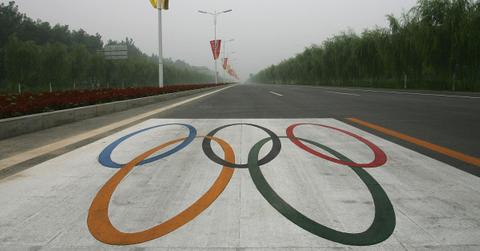
When it comes to capturing honor at the highest level of athletics prowess, it doesn't get more glorious than the Olympics. While the committees that run these games do get a lot of flak, and there have been criticisms of specific policies that eliminate particular athletes from competition for reasons viewers find petty or just plain crazy, the games are still venerated.
These factors don't change the fact that vying for an Olympic gold medal and shattering records in the process is a respected accomplishment. Why else would throngs of people from all over the world travel to host cities in order to cheer on their home country's athletes or see top professionals perform on the greatest stage of their lives?
This is why it makes things all the scarier to see what happens to the venues that are built to host the games after just a few years.
The following photos show the deep states of disrepair and desolation these massive structures undergo after their "use" has been depleted. Host cities have massive potential for financial benefit in welcoming the Olympics, but plans for what to do with said structures following the games are either difficult to implement, or they were never conceived of in the first place.
Brazil - 2016
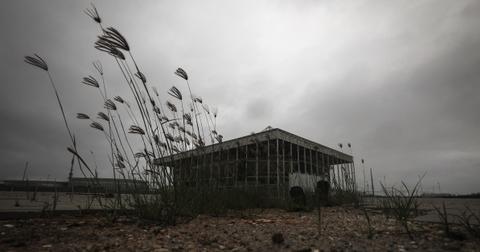
The above is an abandoned aquatics site from the Rio Olympics. What's shocking is that many of the photographs featured in this list of the Rio games were only taken some 7 months after they were over.

Getty points to a mismanagement of funds as being the primary culprit of the quickly-decayed Olympic venue sites: "Seven months after the Rio hosted the first Olympic Games in South America, many of the costly venue sites have been mostly abandoned in spite of promises from organizers that the games would provide a legacy benefit for the citizens of Brazil."
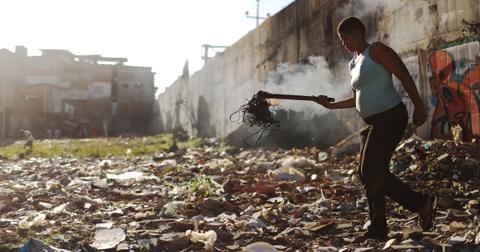
"The country remains in a deep economic and political crisis following the games. Critics believe the money spent on the games could have been better spent on developing infrastructure in the country," the image database writes.
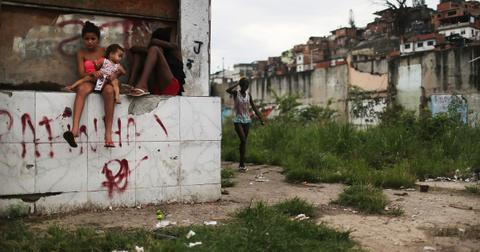
It's been said that Brazil suffered a $2 billion loss from its hosting tenure.
Beijing - 2008
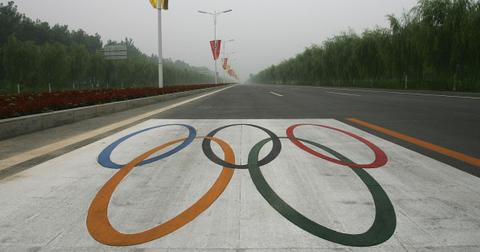
In 2018, a series of photos were taken to mark the 10-year anniversary of the Summer Olympic Games in China. Images of completely abandoned spectator sites, Olympic Village abodes overrun with weeds, collapsed mascot statues, and rusted metallic structures began popping up online.
China reportedly earned $146,000,000 from hosting the games. The main Olympic stadium, which holds 80,000 will be re-purposed for Beijing's hosting of the 2022 Winter Olympic games.
Athens - 2004
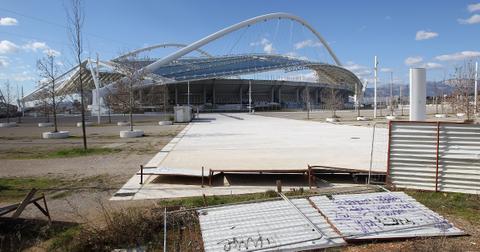
Getty writes, "In 2004 the Olympics returned to Greece, the birthplace of the ancient and modern Olympic Games, however the legacy of the Games has been called into question with many facilities falling into disrepair less than 8 years after they were held."
Poor budgeting was to blame for the condition of the venues. Greece reportedly posted an over $14 billion loss in spending for the games.

The Guardian reported some 10 years after the games that "for many Greeks who swelled with pride at the time, the Games are now a source of anger as the country struggles through a six-year depression, record unemployment, homelessness and poverty, with many questioning how the nation has benefited from the multi-billion-dollar event."
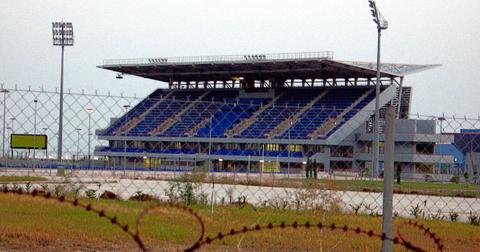
Sarajevo - 1984
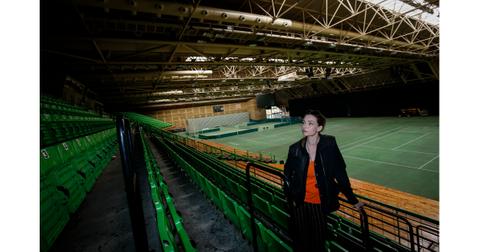
While some of the facilities in Bosnia and Herzegovina were still in use after the Olympics, many of the sites where events were held have fallen into decay.
Even the large-scale Olympic hotels have become more or less condemned or completely abandoned.
However, some of the decrepit courses, like the Bobsled tracks still attract locals, like BMX bikers who brave the debris and lack of maintenance to get some riding in.
Sarajevo's Olympic hosting tenure was fairly successful, especially by 1984 standards: the city was able to walk away with a reported profit of $10,000,000.
1936 - Berlin
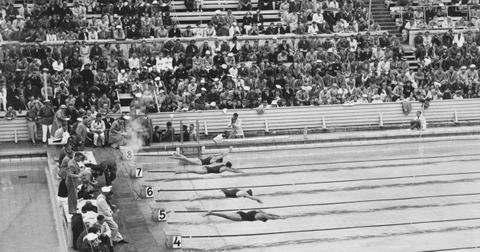
The 1936 games were held in Nazi Germany and Adolph Hitler spared no expense to outdo the grand spectacle held by Los Angeles 4 years prior. A 100,000-seat track and field stadium was constructed in honor of the games, which were also the first ever to not only be televised but covered by radio broadcasts.
Filmmaker Leni Riefenstahl was also commissioned by the German Olympic Committee to create the movie, Olympia, for $7 million. Leni's groundbreaking way of covering the games ultimately pioneered the way all video sports media coverage is handled, including
Of course, Hitler also used the games as a means of promoting Anti-Semitism and Nazi philosophies. The motto for the games in Berlin was "I Call the Youth of the World!"
Many people still visit the village today, either to snap photographs, or go through bike rides. While they are effectively ghost towns, they appear to be in better condition than some of the venues that were constructed over half a century later.